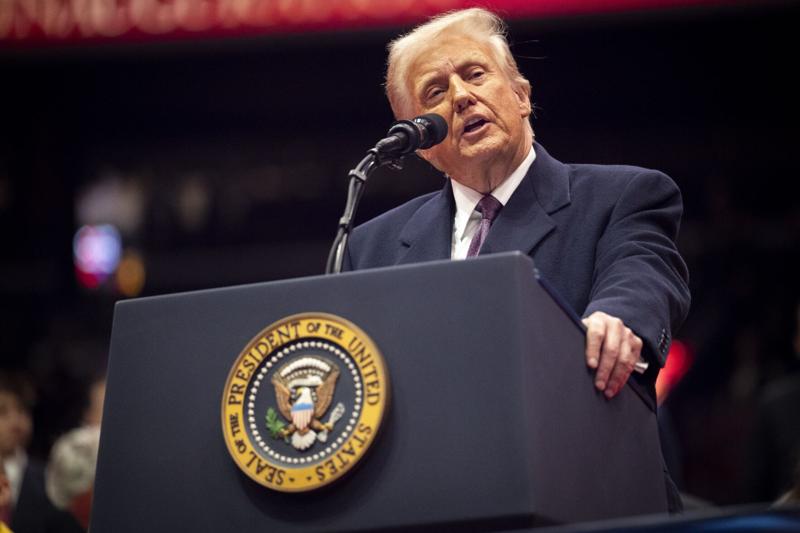President Donald Trump said Thursday that he spoke with China’s President Xi Jinping and that they two global superpowers are planning additional trade meetings.
Trump said he spoke with his counterpart in China for more than 1.5 hours Thursday morning, almost entirely on trade between the two nations. Trump said the call “resulted in a very positive conclusion for both Countries.”
“There should no longer be any questions respecting the complexity of Rare Earth products. Our respective teams will be meeting shortly at a location to be determined,” Trump wrote in a social media post.
Both men offered reciprocal invitations to visit the other, Trump said.
The phone call comes almost a week after Trump accused China of failing to uphold the bargain the two countries reached in Geneva last month.
In May, the two countries reached a 90-day deal to reduce high tariffs. Both countries agreed to slash tariffs that had been so high that nearly all trade between the two nations stopped. The U.S. reduced its tariffs on China from 145% to 30% while the two nations continued to talk. China cut its levies on U.S. imports from 125% to 10%.
Last week, Trump said China had violated the Geneva agreement.
“China, perhaps not surprisingly to some, HAS TOTALLY VIOLATED ITS AGREEMENT WITH US. So much for being Mr. NICE GUY!” Trump wrote at the time.
On April 2, dubbed “Liberation Day” by the president, Trump announced reciprocal tariffs on scores of other nations, but suspended those higher rates for 90 days while his trade team went to work. Since then, Trump’s team has announced a limited trade deal with the United Kingdom and tariff truce with China while talks continue.
Those “Liberation Day” tariffs face legal challenges from states and small businesses.
A three-judge panel on the U.S. Court of International Trade unanimously ruled last week that Congress did not give the president tariff authority under the International Emergency Economic Powers Act of 1977. The court gave Trump 10 days to unwind all the tariffs he issued under IEEPA. The administration appealed that decision and asked for an emergency stay. The appeals court granted that request, putting the Court of International Trade ruling on hold while the appeal continues.
Economists, businesses and some publicly traded companies have warned that tariffs could raise prices on a wide range of consumer products.
Trump has said he wants to use tariffs to restore manufacturing jobs lost to lower-wage countries in decades past, shift the tax burden away from U.S. families, and pay down the national debt.
A tariff is a tax on imported goods paid by the person or company that imports the goods. The importer can absorb the cost of the tariffs or try to pass the cost on to consumers through higher prices.






